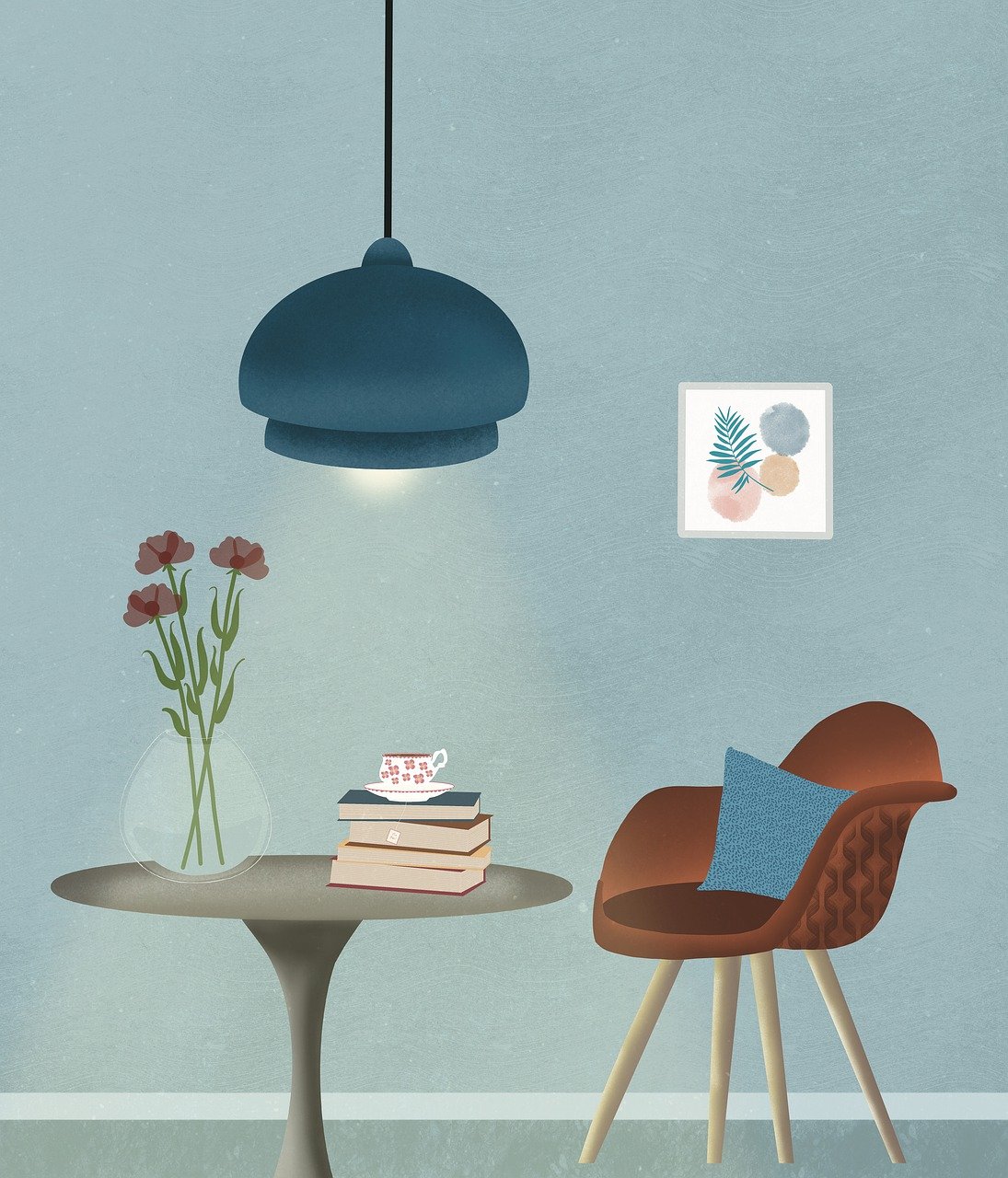Kids Homework Area.
And here we are again at Sweet Blog, the sweetest blog online.
The place to be for all fans of the 'Home Concept.'
Today, Due to several requests, we will discuss the issue of preparing a kids' homework area in your house.
First of all, good for you!
Your desire to prepare your kids' homework area within his room shows excellent parenting. And that in itself is worthy of all praise.
Unfortunately, Nowadays, children tend to get 'stuck' all day long in front of their screens, whether on TV or computers, but mostly on their cell phones.
This issue is indeed very challenging. After all, we all know that as soon as these stimuli stop (for all sorts of reasons), the child's attention ability runs out. Thus, slowly but surely, he develops a behavior pattern that causes his concentration abilities to depend absolutely and exclusively on that external stimulus source. (usually the screen).
In this enlightening article, you can read more about the close link between impaired attention and the increasing use of technological stimuli.
By the way, nothing is better than defining a "clean" space from all these stimuli. 'Free distraction Zone,' you may call it.
The kids' homework area you wish to establish in your child's room is a perfect fit.
As always, later in the article, there will be a refreshing infographic presentation and a video summarizing its content for you.
So, what do you need to pay attention to when preparing a kid's Homework Area?
Hop on!
Table of Contents
1. The Furniture.
The furniture within your kids' homework area will usually be in the form of:
A table, cute designer lamps, a dresser for storing materials, and some shelves.
Nowadays, there is quite a wide selection and variety, but it can be roughly said that these are the main ones.
Designing the furniture within your kids' homework area is a bit tricky since you need to do two things that are quite the opposite.
On the one hand, The design style in question must not be stimulating in a way that will distract your child and ultimately interfere with his teaching or creating, While on the other hand, you must also provide a bit of childish touch, which naturally causes a sense of playfulness which does not necessarily contribute to the concentration process.
It follows, then, that the saying "keep it simple" does not entirely belong in designing a kids' homework area. And our desire to create a decent learning environment for our children is not always possible precisely as we wanted.
In light of all this, we recommend walking the middle path.
On the one hand, Ensure to choose relatively simple kid's furniture with no hallmarks and flashy colors, But with that being said, simultaneously, you must try to preserve the childish touch.
Since you are the one who knows best your child's preferences along with the unique home environment in question, the best answer to the question - "How do I do this"? Lies with you alone. After we have provided you with the guidelines, we trust you to make the right decisions.

Tailor the furniture to your child's needs
The way to achieve both goals is by creating, design-wise, an uncompromising learning environment combined with a childlike touch.
2. Technology.
Despite what is stated in paragraph one, And although the common claim is that kids should have a "clean" workspace from external stimuli, we must note that you shouldn't get us wrong and turn our above recommendations into an encouragement to completely cut them off from technology and send them to the Hamish community (although we have nothing against them) cuz this is far from being the case.
Like most things in life, it's all about the proper dosage. It would be best to figure out the fine line and act accordingly.

In the modern age, controlled technology is an essential need in your child's workspace
You must create as much 'Educational, technological space' as possible (within the limits of your financial capabilities) for your kids' homework area.
Things like:
A good Internet Connection.
Good headset.
Decent Laptop/Tablet.
Digital printer.
Casting Device.
Whiteboard with erasable markers. True - not "technological," but very useful for organizing tasks.
These are just a few examples; we trust you to complete the rest.
You can also check out this article for more relevant information on the subject.
3. Independent Creation.
Although one of the essential elements in any workspace is the physical space where the actual tasks will be carried out - such as a quality table, an excellent dresser, etc., our kids' homework area is characterized by something slightly different - encouraging independent creation.
Allow your child's spirit to flourish. Create, with the help of physical means, the space where he will express himself/his ideas and not just perform someone else's tasks.
'How do I do that? ' You might wonder.
Well, glad you are asking.
Craft boards, writing boards, technological platforms that enable creation through the assimilation of touch, Along with Instruments that encourage invention, and so on.
The variety is enormous, but the principle behind it is pretty solid - you must fill the workspace in question with creative tools that will allow your child to create a unique content world of his own and not necessarily follow the instructions of others (school and so on).
Help him attach his little wings, and he will take off on his own.
 Developing his creativity is an amazing gift you can give your child
Developing his creativity is an amazing gift you can give your child
Provide him with the tools that will help him develop his creative abilities.
You can read more here about the importance of creating an independent space that encourages creativity/creation, one that will express your children's unique abilities (Especially in art).
4. Design.
After discussing abstract ideas, it's time to move on to our favorite part - Visibility and design.
What is the perfect look for your kids' homework area?
In one word - Minimalism.
In two words - Minimalism Minimalism.
Remember, this is still a child's workspace, not an adult's.
Minimalism should be the guiding principle when designing the workspace in question.
Ensure everything is as tiny and compact as possible. Keep everything simple and small. It will prevent unnecessary focus/confusion problems for your child. Try decluttering as much space as possible within your kids' homework area.
By the way, Floating furniture is an excellent idea In this context. On the one hand, they look elegant and innovative. On the other hand, they maintain Minimalism's principles since they will not take up too much space. They are also lovely and custom-designed. And in most cases, it will be compatible with your personal taste and preference.
Delicate Colors.
As mentioned above, this is a child's workspace we are talking about, so he can not be painted with solid colors like white or gray. It is not a law firm.
With that being said, overly "flashy" colors will also not be ideal. They will hurt the sense of focus Your child needs so much.
We recommend going for something in the middle - delicate colors.
Use subtle colors (delicate pink or red for girls, blue or green for boys) to preserve the non-flashy look on the one hand and maintain the childish touch on the other.
Personal Customization.
Nowadays, almost everything can be customized.
You can do this by following a few pretty simple steps. Here are some examples:
Ensure your child's name appears in different childish variations throughout their workspace.
Embroider his name on the computer mouse's bottom, and you can even stick the letters of his favorite superhero on the wall in front of him.
Write down the lyrics of his favorite children's song in a colorful way on the wall, and so on.
The goal is to make him feel as natural (and safe) as possible.
Only then will he feel comfortable enough to create and evolve.
Comfort.
In the end, your child must feel comfortable.
There will be no cognitive or emotional progress without physical comfort.
Plain and simple.
Location.
We are sorry to disappoint you. It seems like there is no sweeping statement here.
Regarding workspace location - a wide range of ideal places might fit.
In some homes, the best area for your kids' homework will be in the child's bedroom. At the same time, in other places, the space under the staircase would be a better match, and there are homes where the ideal location would be in a warehouse outside.
Each location should be examined on its own merits, with the guiding principle being convenience and fit (in addition to everything we have expanded on above).
Suppliers.
As mentioned above, there is a wide variety of suppliers for every product you would like to purchase for your kids' homework area.
But just like there are many vendors, there are also many styles.
Our advice is to go with a particular design style and stick with it.
This way, you will maintain a uniform style throughout your child's workspace.
Remember! Consistency will do you only good.
Parental Control.
Unfortunately, the virtual world is full of dangers of a wide variety.
And given that technology will probably play a significant role in your children's workspace, Be sure to install good parental controls.
The market is full of great parental controls, and you can get important information on the matter right here.
But before going too far, we advise you to hold your horses for a second. You are not CIA agents, and your child is not a terror target. Use this tool as little as possible. The last thing you want is to fuel a crisis of trust between the two of you.
5. Involve Your Child In The Process.
Although he is just a child, In the end, the kids' homework area is meant for him.
Therefore, we recommend involving your child in the decision-making process on issues that may be relevant.
After all, it will hurt a lot if your child does not want to sit there for even one second after a tedious planning and work process.
It would be a great idea to purchase the workspace's products along with him. That way, he will feel like an integral part of the process, something that will undoubtedly result in more significant cooperation on his part.

Share your idea with your child and hear his opinion
Doing so will raise his self-confidence, Strengthen your home bonding, and make him yearn for his workspace to be ready as soon as possible.
All at the same time.

In conclusion, we hope this article - 'Kids Homework Area' - will help you prepare a workspace for your child in the easiest and best way.
And if you've made it this far, please don't forget to jump into our collections page.
What are you waiting for?
For more fascinating and informative home design articles, visit our sweet blog and subscribe to our sweet community. And if you have any more questions on the matter, please feel free to reach out.


Share and get 15% off!
Simply share this product on one of the following social networks and you will unlock 15% off!